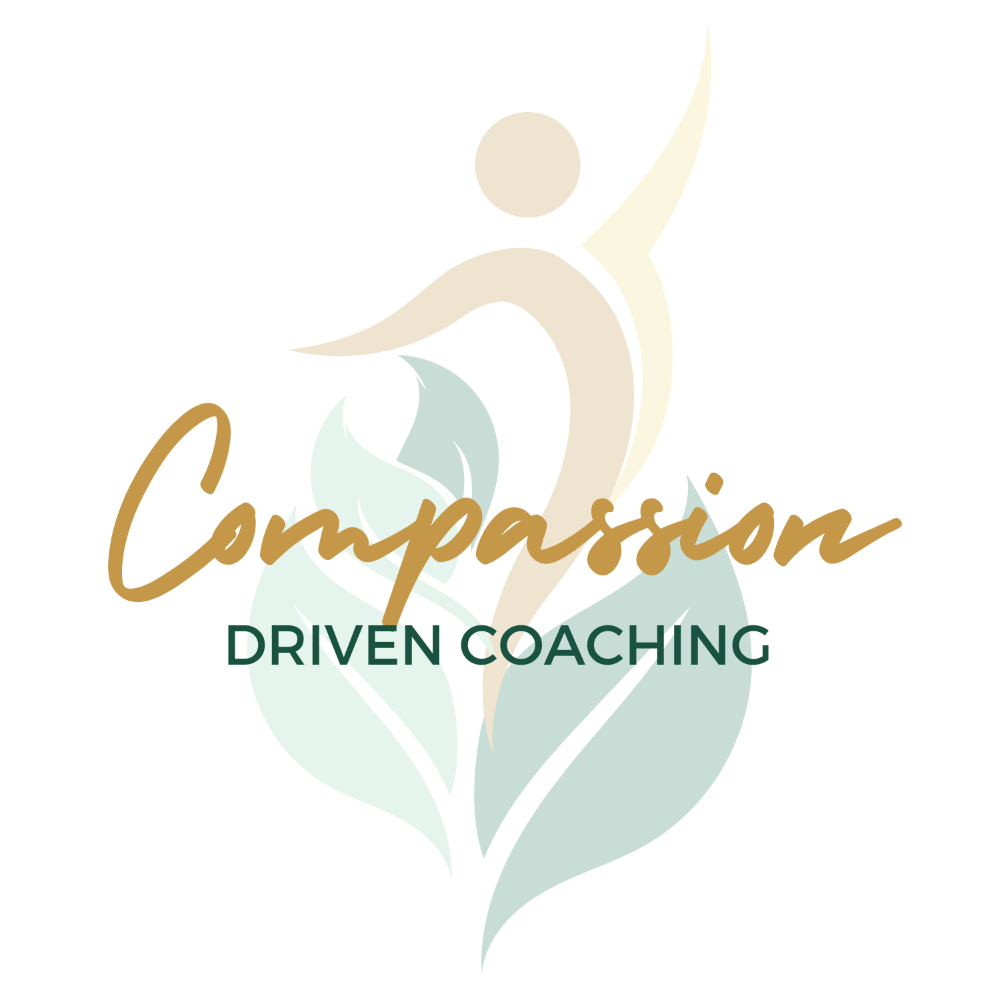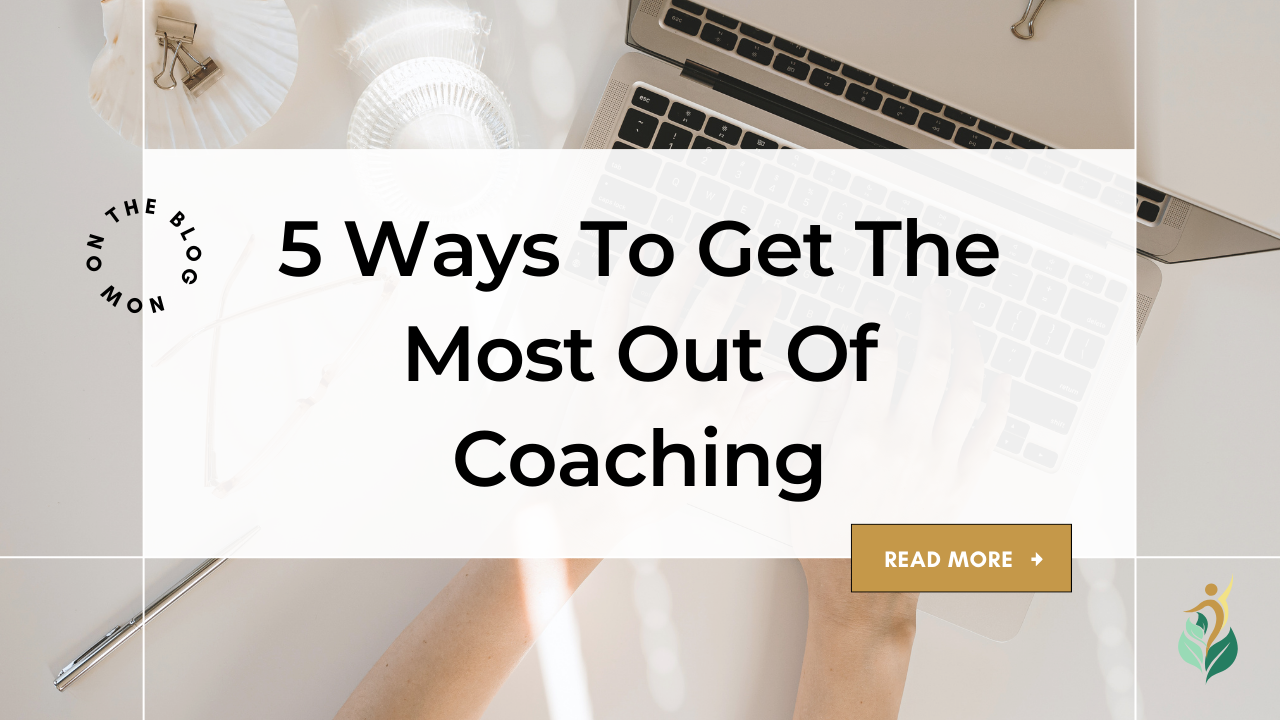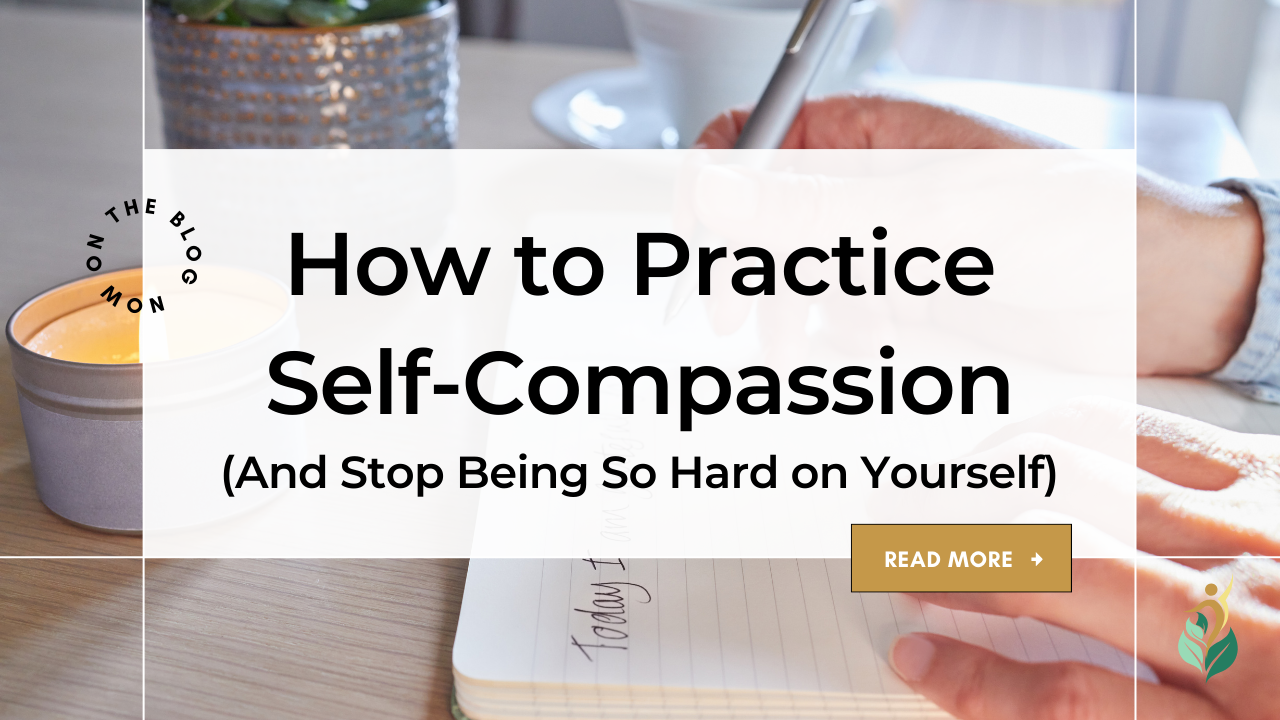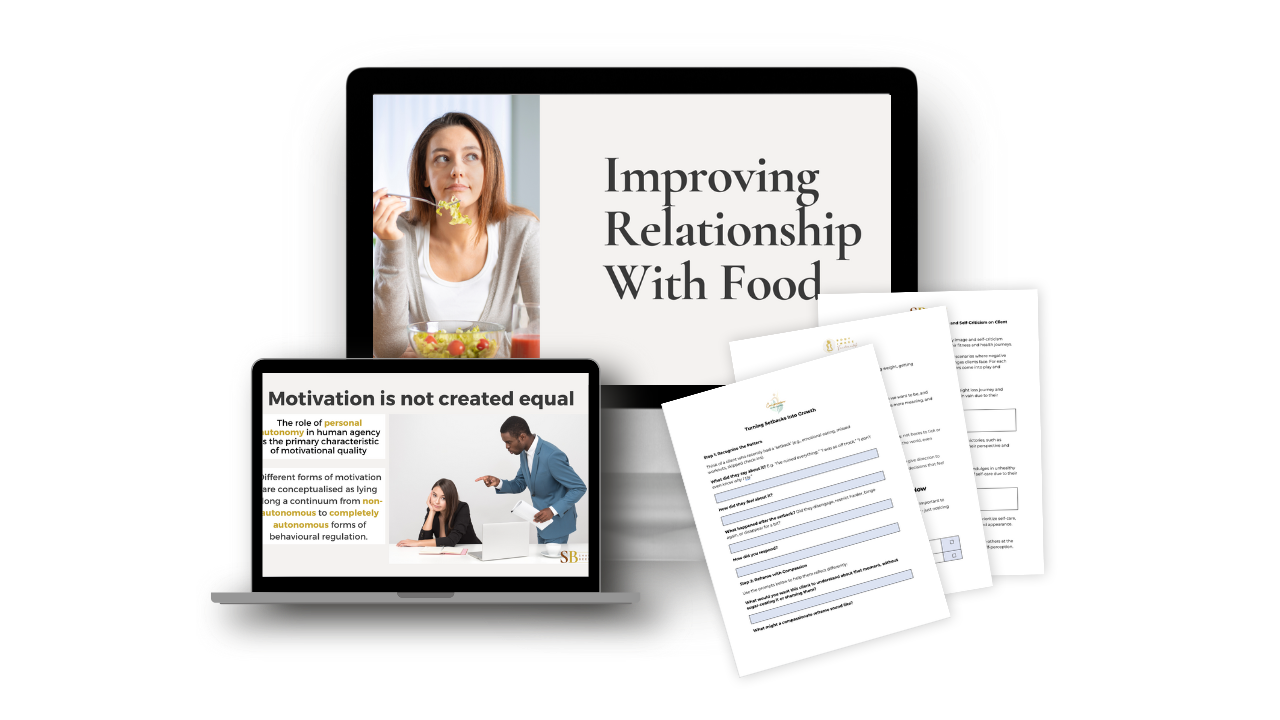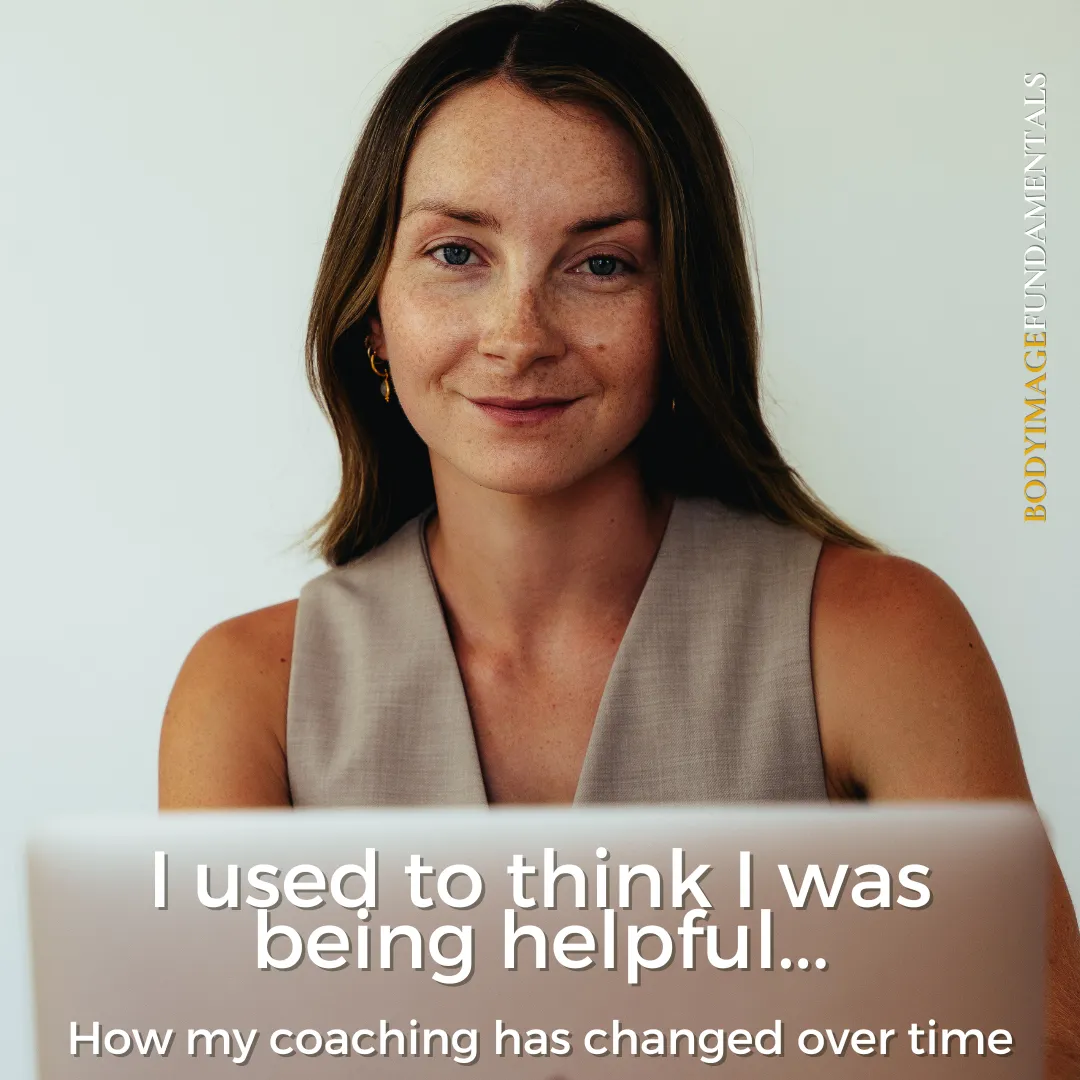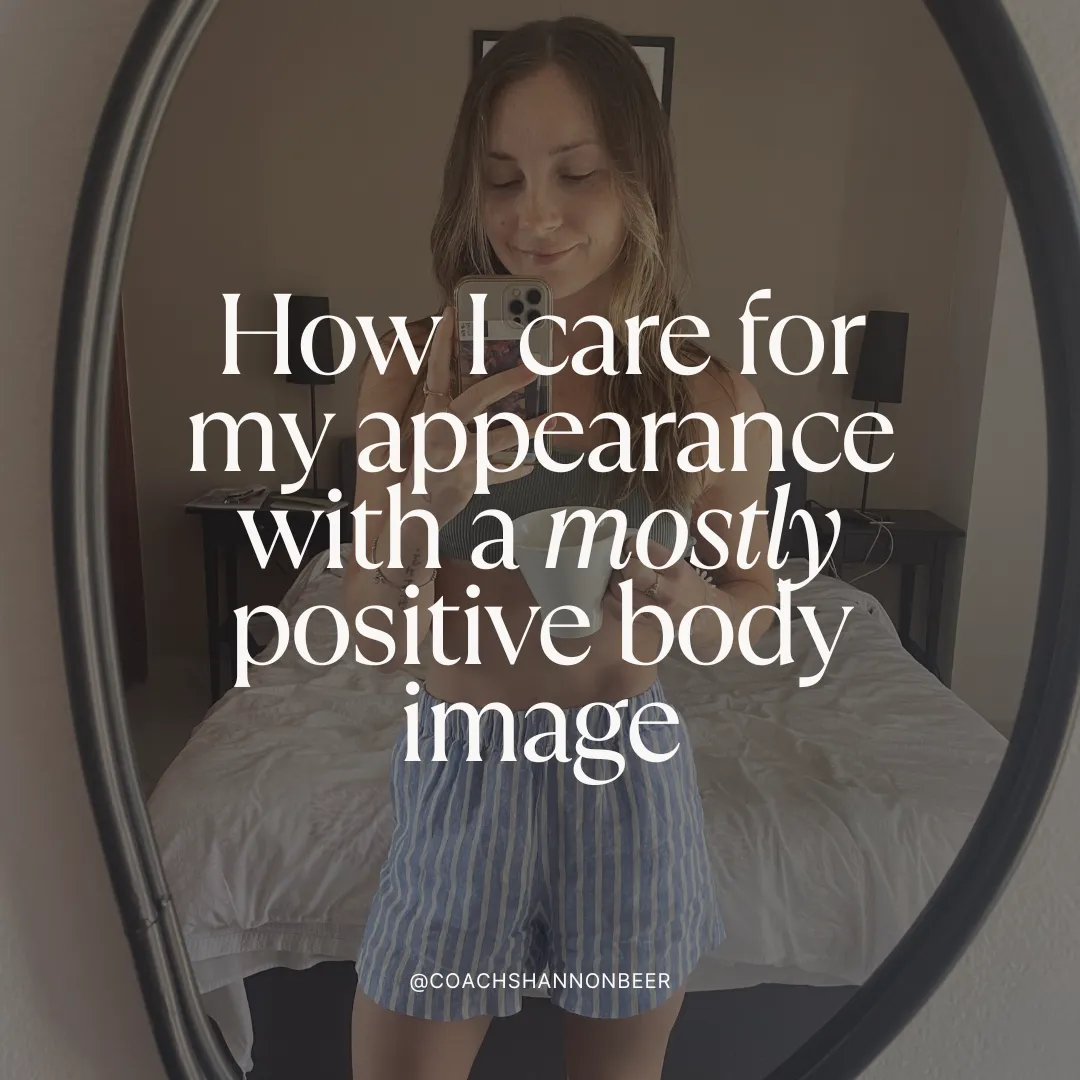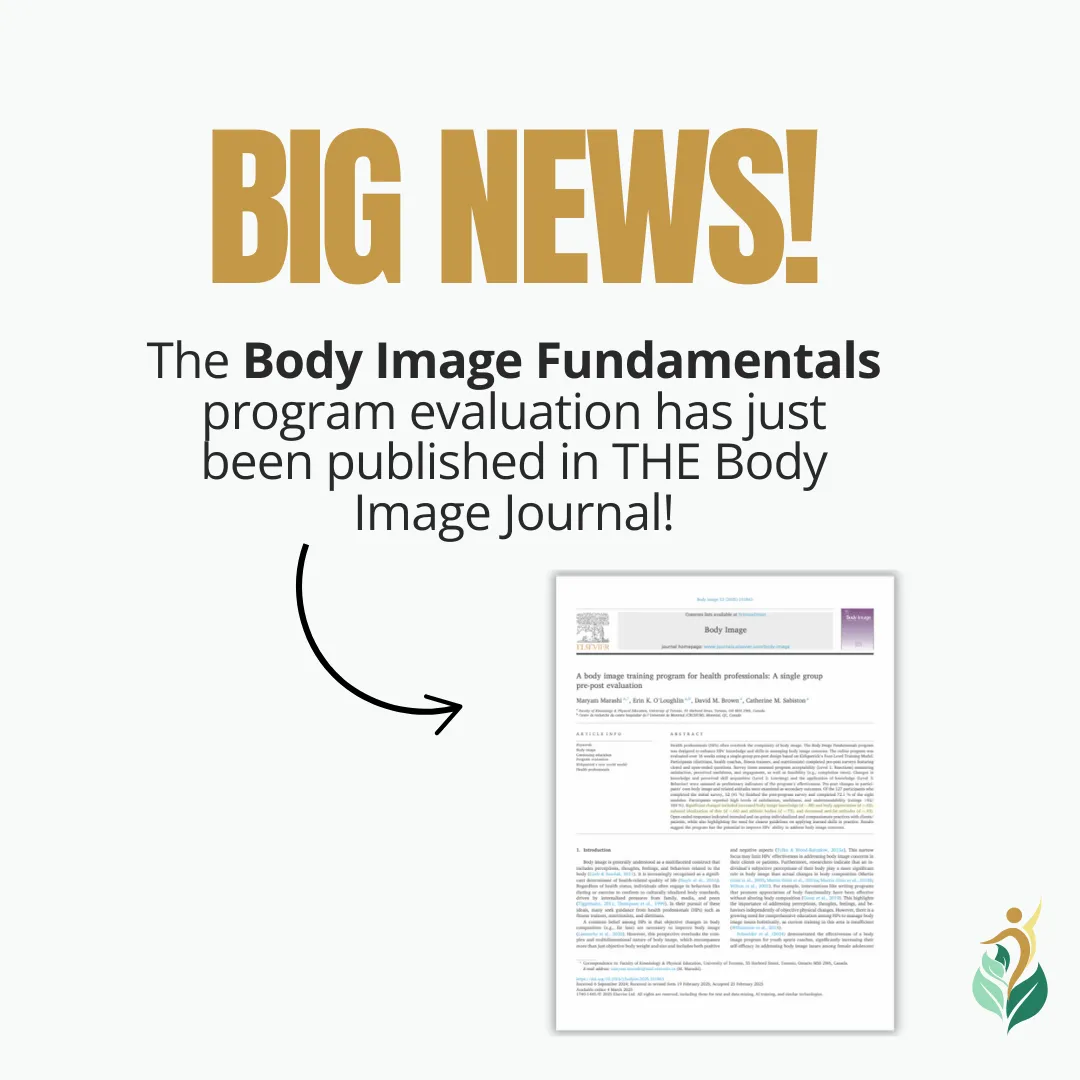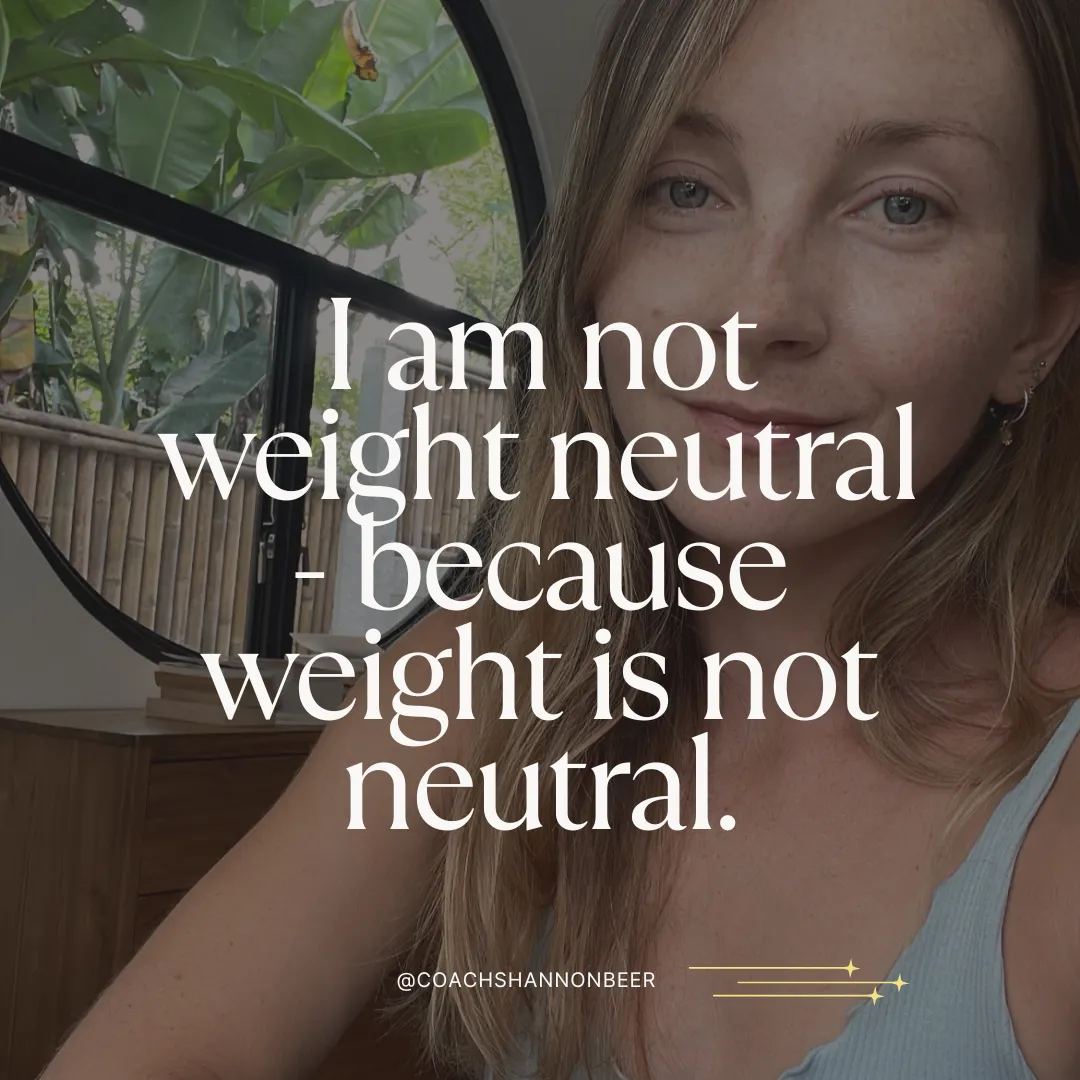How a Body Image Course Can Boost Your Confidence and Self-Image
May 23, 2023
Transforming Your Body Image
Are you tired of feeling insecure about your body? Do you constantly compare yourself to others and struggle to feel good about yourself? If so, you're not alone. Many people struggle with body image issues, but there is a way through it.
A body image course can help you transform the way you see yourself and boost your confidence and self-image. Through evidence-based videos, expert insights and guided exercises, you'll learn to challenge negative self-talk, embrace your unique attributes, and develop a healthier relationship with your body. Whether you're looking to break free from the diet cycle or simply want to feel more comfortable in your own skin, a body image course can be a powerful tool for personal growth and transformation. You don't have to waste any more of your life hating how you look. You are not broken, your body is not wrong, and there are tools and strategies out there to help.
Understanding Body Image
Body image is a term used to describe the way we see ourselves, our thoughts and feelings about our appearance, and how we treat ourselves and our bodies[1]. It can be influenced by a range of factors, including our upbringing, cultural norms, media representation, and personal experiences. You can read more about that HERE.
For some, body image is something that is empowering; for others, it can be a source of distress. In a world where physical appearance is treated as social currency, how we feel about our looks can influence the way we interact with others, how we treat our bodies, our participation in important life activities and even our academic and career aspirations[2].
The Impact of Body Image on Mental Health
The way we think and feel about our bodies can have a significant impact on our mental health.
Negative body image is linked to a myriad of negative health outcomes including eating disorders[3], depression[4], low self-esteem[5]. social anxiety[6], impaired sexual functioning[7] and lower levels of physical activity[8]. People with negative body image frequently engage in unhealthy behaviours such as extreme dieting, overeating, and compensatory behaviours to control their weight[9]. Exercise may be seen as a strategy for weight loss, “shaping and toning” the body, and these reasons of exercise are associated with increased body dissatisfaction[10]. When we are constantly comparing ourselves to others and focusing on our perceived flaws, it can be difficult to feel confident and comfortable in our own skin.
When we have a positive body image, the story is a whole lot different. A positive body image is associated with improved physical and mental health[11] and higher quality of life[12]. Contrary to popular belief, positive body image is not linked to disengagement in healthy activity, eating, and self-care. In fact, body appreciation is associated with higher intuitive eating[13] (an adaptive style of eating that is protective against eating pathology[14]) and inversely related to BMI[15]. Rather than encouraging individuals to ‘give up’ on themselves, promoting a positive body image is likely to lead to increased participation in health-seeking behaviours[16].
Common Body Image Issues and How to Overcome Them
Poor body image can lead to:
- Low self esteem
- Obsessive thinking about food and disordered eating behaviours
- Constantly comparing your body to others
- Avoiding activities that draw attention to how you look
Improving your body image is all about learning how see and value yourself as a whole person, rather than placing all your worth in how you look. It involves appreciating all of the things your body can do for you - after all, it's the one vessel you have to carry you throughout life. It's about treating your body with respect, and fuelling and moving your body in ways that make you feel good.
How a Body Image Course Can Boost Your Confidence and Self-Image
A body image course can be a powerful tool for boosting your confidence and self-image. Here's how:
1. Dealing With Bad Body Image Days
Through guided exercises and evidence-based research insights, a body image course can help you develop a more positive and compassionate relationship with your body so you can live your life - even on the days you don't feel your best.
2. Embracing Your Unique Attributes
Rather than giving up on your appearance, a body image course will encourage you to embrace your unique personal style and challenge societal beauty standards. This can help you feel more confident and comfortable in your own skin.
3. Developing a Healthier Relationship with Your Body
By exploring your relationship with your body and learning new strategies for self-care, a body image course can help you develop a healthier and more positive relationship with your body.
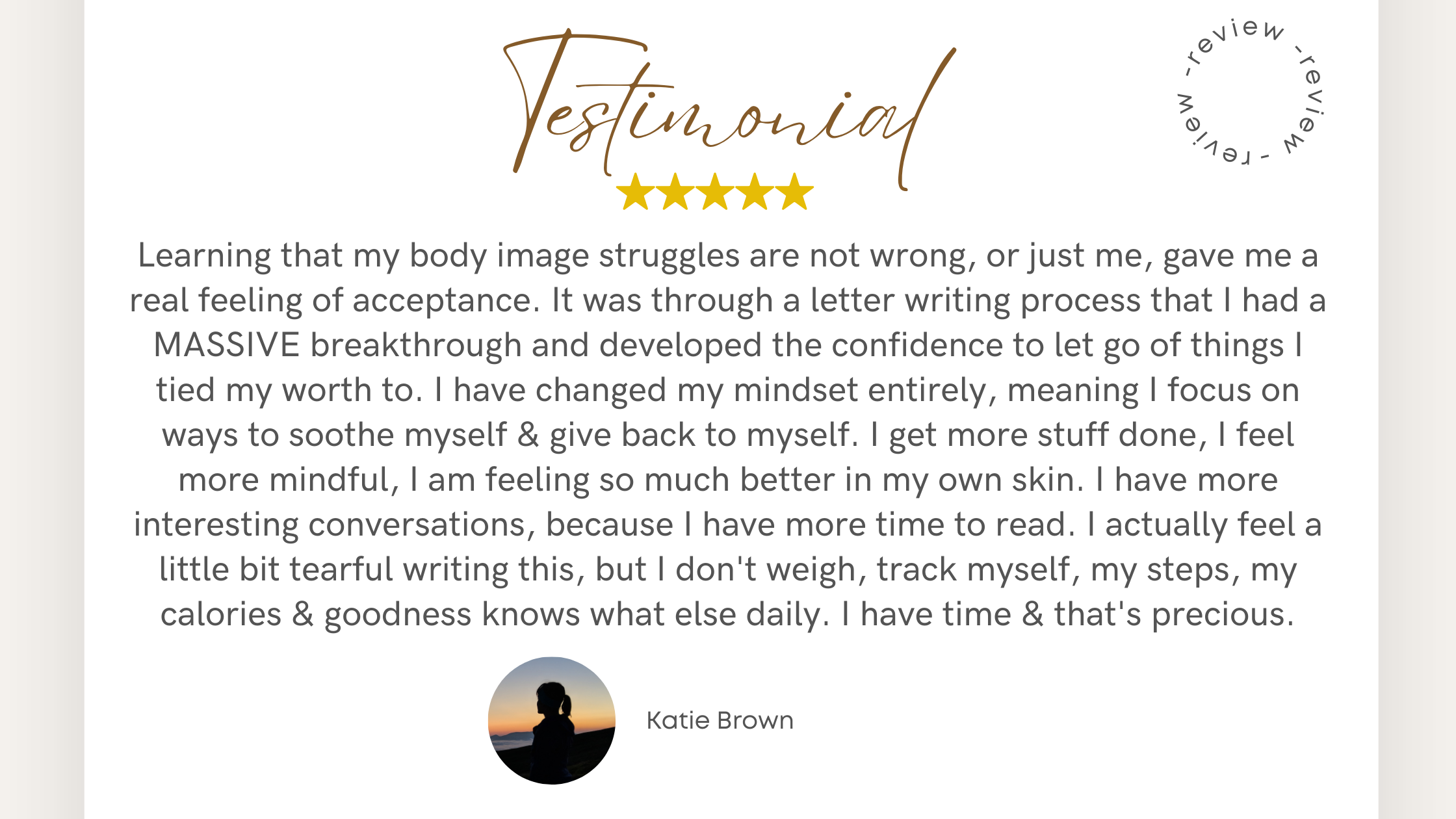
Podcast Playlist for A Positive Body Image and Self-Confidence
If you're looking for additional resources to support your journey towards a positive body image, here are some recommendations:
- Body Image and Mental Health with Dr Eva Pila
- Social Media, Body Image and Social Advocacy with Dr Phillipa Diedrichs
- Body Image in Men and Athletes with David Brown
- Promoting A Positive Body Image with Dr Jessica Alleva
- Self Esteem, Perfectionism and Body Image with Thomas Midgley
- How Coaches Can Support Body Image with Dr Emily Matheson
- How To Navigate Negative Body Image and Help Others with Tessa Peters
How to Maintain a Positive Body Image After Completing a Course
Completing a body image course is just the beginning of your journey towards self-confidence. Here are some tips for maintaining a positive body image:
Focus On Your Values
Think about the life you want to live, not just how you want to look. It's much easier to cope with bad body image days when you focus on the things that bring your purpose, meaning and joy. Not sure what your values are? THIS post will help you clarify them.
Curate Your Social Media Feed
Look for less:
- Standard fitspo that invites you to compare (e.g. what I eat in a day) or encourages you to diet, 'discipline' or ignore your body
- Posts that are heavily edited
Look for more:
- Accounts showing images of diverse bodies
- Posts encouraging you to think critically about health, appearances and well-being
- Reminders and advice for practicing body appreciation (read more about that HERE)
Practice Self-Compassion
Easier said than done, I know. But self-compassion is crucial for supporting ourselves throughout life. Not sure where to start? Listen to THIS podcast.
Conclusion
A body image course can be a powerful tool for personal growth and transformation. By challenging negative self-talk, embracing your unique attributes, and developing a healthier relationship with your body, you can boost your confidence and self-image. Remember that no one has a perfect body image all of the time. But if your concerns about your body are causing your to miss out on life, a body image course can help you take the first step towards a healthier body image.
If you are ready to show your body more respect, join the Build Body Confidence Course. Life is too short to miss out on.
If you are a health and fitness coach, nutritionist or dietitian, take it further with the Body Image Fundamentals Course. All of the most important body image research has been condensed into this 8 week course, so you can learn the science and feel confident in your ability to support your clients.
References
[1] Cash TF, Pruzinsky TE. Body images: Development, deviance, and change. New York: Guilford Press; 1990.
[2] Yanover, T.; Thompson, J.K. Eating problems, body image disturbances, and academic achievement: Preliminary evaluation of the eating and body image disturbances academic interference scale.Int. J. Eat. Disord. 2008,41, 184–187.
[3] Fairburn CG, Garner DM. The diagnosis of bulimia nervosa. Int J Eat Disord. 1986; 5(3):403–19.
[4] Sharpe, H., Griffiths, S., Choo, T. H., Eisenberg, M. E., Mitchison, D., Wall, M., & Neumark-Sztainer, D. (2018). The International journal of eating disorders, 51(10), 1168–1175. https://doi.org/10.1002/eat.22936
[5] Cash TF, Fleming EC. The impact of body image experiences: Development of the Body Image Quality of Life Inventory. Int J Eat Disord. 2002; 31(4):455–60. PMID:11948650
[6] Cash TF, Fleming EC. Body image and social relations. In: Cash TF, Pruzinsky T, editors. Body image: A handbook of theory, research, and clinical practice. New York: Guilford Press; 2002. p.277–86.
[7] Weaver AD, Byers ES. The relationships among body image, body mass index, exercise, and sexual functioning in heterossexual women. Psychol Women Q. 2006; 30(4):333–9.
[8] Grogan S. Body image and health: Contemporary perspectives. J Health Psychol. 2006; 11(4):523–30. PMID:16769732
[9] Taylor, C. B., Bryson, S., Luce, K. H., Cunning, D., Doyle, A.C., Abascal, L. B.,…Wilfley, D. E. (2006). Prevention of eating disorders in at-risk college-age women.Archives of General Psychiatry, 63, 881–888. https://doi.org/10.1001/archpsyc.63.8.881
[10] Prichard, I., & Tiggemann, M. (2008). Relations among exercise type, self-objectification, and body image in the fitness centre environment: The role of reasons for exercise. Psychology of Sport and Exercise, 9(6), 855–866. https://doi.org/10.1016/j. psychsport.2007.10.005
[11] Tylka, T., & Wood-Barcalow, N. (2015). The body appreciation scale-2: Item refinement and psychometric evaluation. Body Image, 12, 53-67. https://d0i.org/10.1016/j.b0dyim.2014.09.006
[12] Nayir T, Uskun E, Yürekli MV, Devran H, Çelik A, Okyay RA. Does body image affect quality of life?: A population based study. Ciccozzi M, editor. PLoS One. 2016 Sep 20;11(9):e0163290.
[13] Linardon, J. (2022). Reciprocal associations between intuitive eating and positive body image components: A multi-wave, cross-lagged study. Appetite Article 106184. https://doi.org/10.1016/j.appet.2022.106184
[14] Linardon, J. (2021). Positive body image, intuitive eating, and self-compassion protect against the onset of the core symptoms of eating disorders: A prospective study. International Journal of Eating Disorders, 54(11), 1967–1977. https://doi.org/10.1002/eat.23623
[15] Tylka, T. L., & Kroon Van Diest, A. M. (2013). The Intuitive Eating Scale-2: Item refine-mentand psychometric evaluation with college women and men. Journal of Counseling Psychology, 60, 137–153. http://dx.doi.org/10.1037/a0030893
[16] Gillen, M. M. (2015). Associations between positive body image and indicators of men’s and women’s mental and physical health. Body Image, 13, 67-74. https://doi.org/10.1016/j.bodyim.2015.01.002

Stuck In All Or Nothing Mode?
Your mind isn’t broken; it’s just running on autopilot.
Take the free Emotion System Audit and learn what's driving your patterns - and what to do when you feel overwhelmed or out of control.
